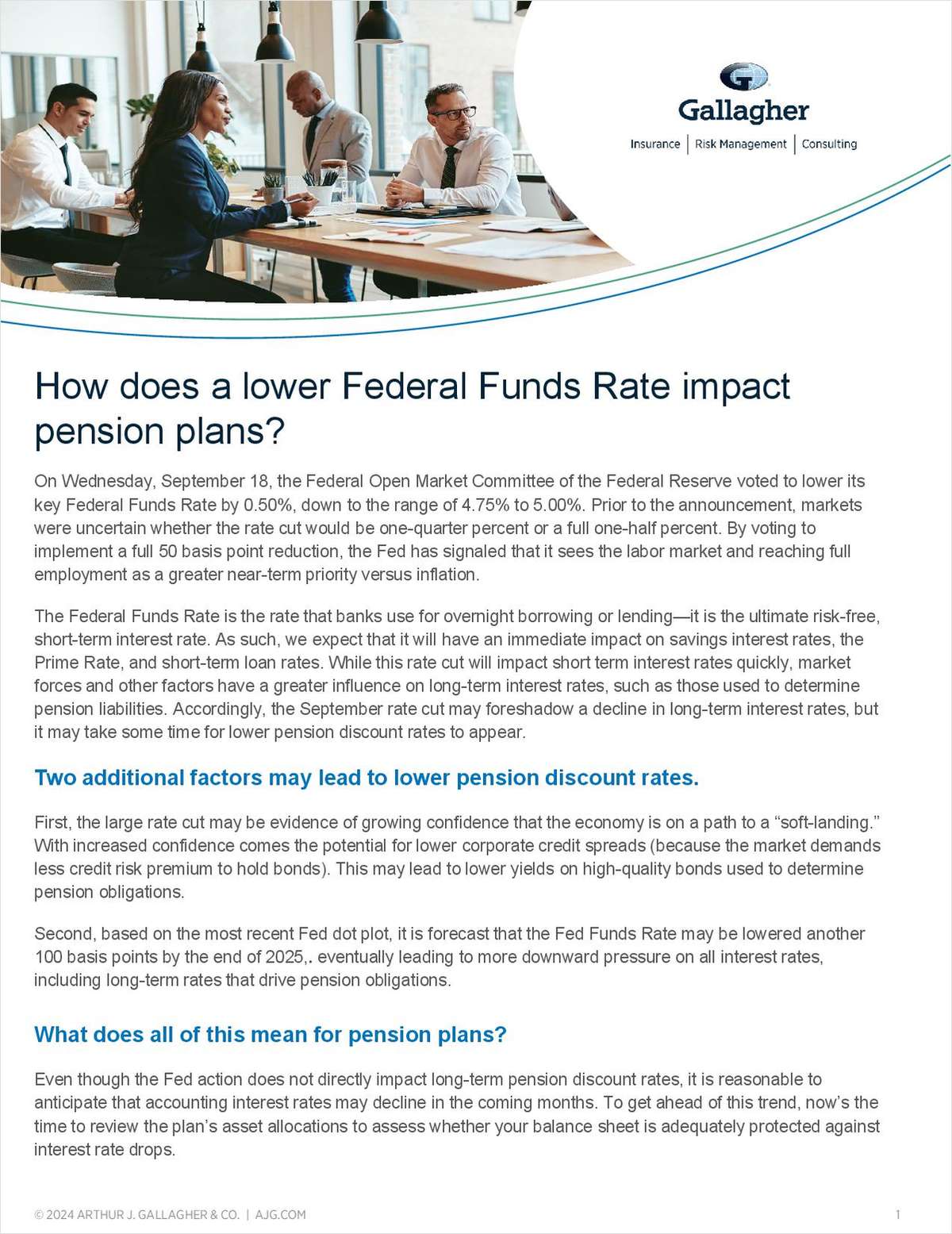Most agree there are problems in the 401(k) world. Certain types of plans (mostly small ones) don’t have the clout to negotiate fees as favorable as their larger brethren. Certain types of investment options (notably those involving annuities and collective trust funds) do not disclose vital information as vigorously as their mutual fund counterparts (mostly because the latter are required by law to report while the former are not). Certain types of mutual funds charge certain fees (namely 12b-1 and revenue sharing fees), that have a directly negative impact on fund performance versus those that don’t. Certain types of service providers (namely non-fiduciaries) can legally place a plan into investments against that plan’s best interests.
These problems are well documented and their corresponding solutions, while controversial, possess the key attribute of being obvious and easy to implement. There are more problems, mostly dealing with participant’s lack of participation, naïve diversification strategies and lack of long-term thinking. We are seeing plan sponsors more successfully address these problems as behavioral finance techniques slowly (and not so slowly) seep into plan design.
Given this, why have Ian Ayres and Quinn Curtis – two law professors and the seemingly self-proclaimed dynamic duo of 401(k) fee-dom – so botched what should have been an easy research report that even industry thought leaders – who are well aware of the aforementioned 401(k) problems – find it difficult to support (see “Hit, Miss or Backfire? Controversial Ayres/Curtis 401k Fee Paper Claims Broad-Based Fiduciary Breach,” FiduciaryNews.com, March 4, 2014).
In his seminal book Il Principe (The Prince), Machiavelli advised would-be rulers, “In the actions of all men, and especially of princes, where there is no court to appeal to, one looks to the end. So let prince win and maintain his state: the means will always be judged honorable, and will be praised by everyone.” This has been popularly interpreted as “the ends justify the means.” Could it be that Ayres and Curtis had just read this sixteenth century masterpiece immediately prior to writing their paper and took its classic adage to heart?
If their end is to garner attention to several of the widely recognized 401(k) problems stated above, was it necessary to use sometimes questionable means? The paper fails to identify the source of its data, goes on an irrelevant digression regarding active vs. passive funds and exhibits an embarrassing (for two law professors) lack of the DOL’s stance on the regulations regarding 401(k) fees. And to what end? Convince America some 401(k) plans have fiduciary problems?
We already know that.
Worse, rather than being the dire crisis implied by their report, the fee issue, if we are to believe the trends evidenced by actual data reported in The 401k Averages Book (14th Edition), 401(k) fees having been down for some time now.
But the fiduciary problems go far beyond fees and this is where Ayres and Curtis – two lawyers, need I remind you – could have really added value. It would have been more helpful if Ayres and Curtis, rather than conducting a generic statistical analysis of dubious credibility, had instead dissected specific case studies of actual court-determined fiduciary breaches and explained to plan sponsors how to avoid placing themselves in that same situation. Heaven knows their paper is replete with citations to many of the relevant cases. Why couldn’t have they merely connected the dots for the less legally inclined and carved out a easy-to-understand logical path for plan sponsors to follow.
In other words, why are they channeling Machiavelli when what we need is Sherlock Holmes?
Perhaps because they have an end other than “proving” we have a 401(k) fee problem?
Complete your profile to continue reading and get FREE access to BenefitsPRO, part of your ALM digital membership.
Your access to unlimited BenefitsPRO content isn’t changing.
Once you are an ALM digital member, you’ll receive:
- Breaking benefits news and analysis, on-site and via our newsletters and custom alerts
- Educational webcasts, white papers, and ebooks from industry thought leaders
- Critical converage of the property casualty insurance and financial advisory markets on our other ALM sites, PropertyCasualty360 and ThinkAdvisor
Already have an account? Sign In Now
© 2024 ALM Global, LLC, All Rights Reserved. Request academic re-use from www.copyright.com. All other uses, submit a request to [email protected]. For more information visit Asset & Logo Licensing.








